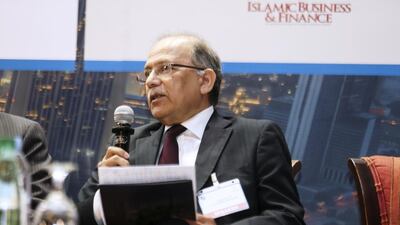Reforms to takaful regulations across the Arabian Gulf are helping to improve the creditworthiness of companies in the loss-making industry, according to the ratings agency Standard & Poor’s.
Legal changes will cause short- term pain to the region’s Islamic insurers – but the rewards will be “better capital management, liquidity, internal controls, and corporate governance”, S&P said.
That is good news for an industry segment that ran an overall loss in 2014, according to earlier data from S&P – and which accounts for only 1 per cent of outstanding Islamic assets worldwide.
Takaful, or Islamic insurance, combines features of conventional cooperative insurance, and Sharia-compliant investment funds.
Under the Wakalah model common in this country, takaful firms manage an Islamic investment fund on behalf of policyholders, with any surplus earned after fees and claim payouts returned to the policyholder.
The UAE has introduced a single Sharia board for takaful firms at the Central Bank, increased minimum capital requirements, required firms to formalise their risk management, and introduced a range of new paperwork for insurers to ensure that they are calculating risk and solvency properly.
Some analysts see the UAE’s regulatory moves as a way to encourage consolidation in the highly fragmented industry.
Raymond Hurley, a partner at PwC, said this year that the reforms introduced by the UAE’s Insurance Authority, which regulates the industry, constituted “the single most fundamental change to insurance regulation in the country for a generation”.
“Regulators have made it harder for smaller-scale insurers to remain in compliance – they are nudging takaful firms into combining their businesses with a larger player,” he said.
For an industry that finds it hard to run surpluses on its policyholder funds, this could be a welcome development, he said.
Michael Dunckley, an analyst at the ratings firm AM Best, said that mergers would boost UAE takaful firms’ ratings provided that the greater scale was supplemented by improved earnings, strong risk-adjusted capitalisation and an effective enterprise risk management framework.
High costs and lack of scale are currently obstacles to the sector becoming profitable, he said.
Other Gulf states are also changing the rules for insurers. Bahrain introduced regulations this year that sought to increase the quality and frequency of financial disclosures, and to require automatic recapitalisation of the policyholder fund if it runs a deficit.
Oman and Qatar have also tightened rules, while Kuwait is set to introduce regulations later this year.
But balance sheet strength is only one of the problems faced by takaful operators, which have failed to differentiate themselves sufficiently from their conventional counterparts, S&P said.
“We have perhaps lost sight of the track we have been on. In the UAE we are supposed to be the leader in everything – but when it comes to takaful, we have failed to differentiate ourselves,” Ajmal Batty, the chief executive of Tokio Marine Middle East, said this year.
abouyamourn@thenational.ae
Follow The National's Business section on Twitter

